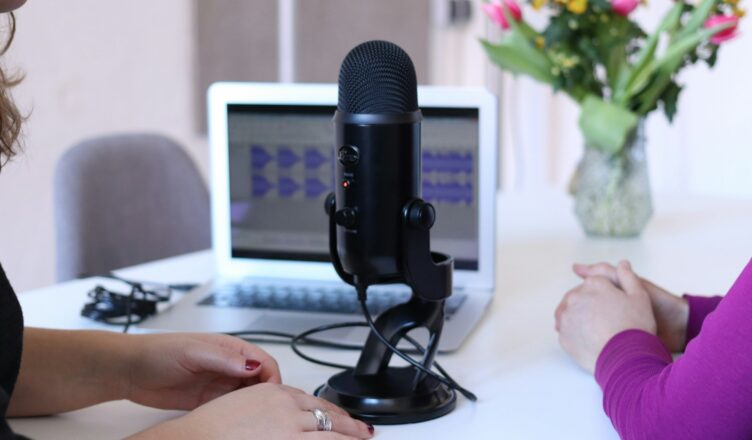Podcasts have surged in popularity, transforming into a staple of modern media. Be it true crime, business tips, or a variety of other topics, there’s a podcast to suit nearly every interest with millions tuning in daily. But as the podcasting space becomes increasingly crowded, creators are searching for ways to stand out and engage their audiences on a deeper level.
One powerful tool to elevate the podcast experience is background music. By carefully integrating music, podcasters can create an atmosphere that resonates emotionally with listeners, making the content not only more engaging but also more memorable. This holds true for all types of podcasts, including local podcasts that aim to connect with a community audience.
The Power of Audio in Storytelling
Podcasts offer a distinct and compelling way to tell stories and share information. Unlike written content or video, podcasts rely solely on audio, which demands a different level of imagination and focus from the audience. This auditory nature of podcasts creates an intimate connection between the speaker and the listener, allowing stories to unfold in a more personal and immersive manner.
Sound plays a vital role in this engagement. The human voice alone can convey a wide range of emotions, but when combined with carefully selected background music, the emotional depth of a story is amplified. Music can set the tone, build suspense, or provide relief, guiding the listener through the narrative in a way that words alone cannot. It’s this blend of voice and music that captures attention and keeps listeners hooked from start to finish, making the storytelling experience richer and more engaging.
Benefits of Adding Background Music to Podcasts
Background music has the power to transform a podcast by setting the tone and atmosphere, making the content more immersive for the listener. Imagine a suspenseful true crime podcast. Without music, the narration might feel flat, lacking the tension that the story demands. But add a subtle, eerie soundtrack, and suddenly, each word carries more weight. The atmosphere thickens, drawing the listener deeper into the narrative, making the experience far more engaging.
Consider a podcast episode where the host tells a personal story. Without music, the focus is solely on the voice, which may struggle to hold attention over time. However, with the addition of a gentle, complementary melody, the story gains a new dimension. The music enhances the mood, helping to sustain interest and reduce the likelihood of listeners dropping off mid-episode.
Carefully chosen music doesn’t just enhance the atmosphere; it also strengthens the emotional connection with the audience. A well-timed musical cue can heighten emotions, making moments of joy, sadness, or tension feel more profound. For example, the popular podcast This American Life often uses music to underscore emotional beats in a story, making them more relatable and memorable for listeners.
Beyond its emotional impact, background music is also important to the overall structure of a podcast. It aids in transitions, helping to maintain a smooth flow between different segments. A podcast discussing various topics might use different musical interludes to signal a change in subject, ensuring the episode feels cohesive rather than disjointed. For instance, the podcast Radiolab skillfully uses music to pace its episodes, with soundscapes that guide the listener from one segment to the next, creating a seamless and engaging experience.
Types of Background Music and Their Impact
Choosing the right type of background music can significantly influence the mood and effectiveness of a podcast. Different genres of music evoke different emotions, making them more or less suitable depending on the content. For instance, classical music often lends itself well to serious or contemplative topics, providing a sophisticated backdrop that enhances thoughtful discussion. On the other hand, upbeat or pop music might be more appropriate for light-hearted or casual content, energizing the listener and complementing the podcast’s tone.
However, selecting the perfect genre is just the first step. The balance between music and speech is crucial. Music should enhance the spoken word, not overpower it. If the music is too loud or too complex, it can distract from the message, causing listeners to lose focus. Podcasters need to carefully adjust the volume, ensuring the music supports the narrative without stealing the spotlight.
Another important element is the use of theme music or soundscapes. Recurring theme music can help create a signature style for a podcast, making it instantly recognizable to listeners. This is where royalty free music comes in handy. They offer a wide range of options that podcasters can use without worrying about licensing issues. For example, a podcast on environmental issues might use ambient nature sounds as a recurring theme, reinforcing the subject matter and creating a consistent auditory brand.
Incorporating the right genre, maintaining the correct balance, and utilizing theme music effectively can all work together to create a polished and professional podcast that resonates with its audience.
Adding background music to podcasts is more than just an artistic choice; it’s a strategic decision that can significantly enhance the listener’s experience. By carefully selecting and integrating music, podcasters can create a more immersive atmosphere, keep their audience engaged, and forge a stronger emotional connection with listeners.


